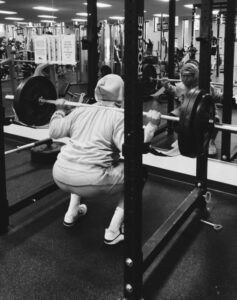National Addiction Awareness Week runs from November 19 to 25, so let’s talk about it. First, some statistics. An estimated 21 percent, or about six million, Canadians deal with addiction in their lifetime. In 2016 and 2017, 62 percent of people receiving treatment for addictions in Canada were male. Young people aged 15 to 24 are more likely to suffer from substance-use disorders and/or mental illnesses than any other demographic.
I can say with full confidence from my lived experiences that these numbers aren’t lying. Whether it’s booze, pot, coke, or even study drugs, substance use is around every corner in these formative years.

It’s so easy to get sucked into the lifestyle where you are living for the weekend and getting fucked up with your friends is always the main event. It’s fun—trust me, I know. But is it serving you?
I’m not here to lecture, or shame, or convince the whole college to go sober. I’m just here to say that partying isn’t a prerequisite for the college experience, and to break the stigma around sobriety.
So, If you are worried that you can’t stop, or you think a friend may be struggling with addiction, keep reading.
Alcohol, marijuana, nicotine, pornography: you’d be hard-pressed to find a young man today who has never used any of these. But there’s a serious stigma around substance use in society today.
As men, we avoid talking about addiction for fear of appearing weak, when in reality, the strongest thing you can do is open up and ask for help.
If you notice a friend drinking or smoking more than usual, check in on them. If you find yourself struggling to take a night off, check in with yourself.
After all, the first step to recovery is admitting you have a problem.
I had a problem.
Six months ago, I was in active addiction. Now as I sit here writing this, on the Sunday of Halloweekend, I’m proud to say I’m almost three months sober.
I say that not to brag but to demonstrate how quickly you can change your life if you just bite the bullet and get help.
If you think you or someone you love may be suffering from addiction, please don’t suffer in silence. Contact Camosun Counselling at camosun.ca/services/health-and-wellness/counselling-centre or the BC Alcohol and Drug Information Referral Service at 1-800-663-1441.
